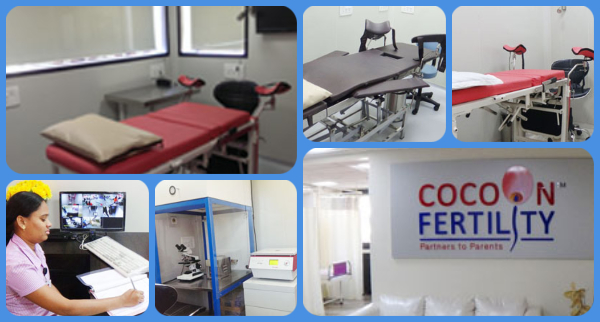What is IUI?
IUI (Intra Uterine Insemination) or Artificial Insemination is a process in which the semen sample is prepared in the laboratory to separate fast-moving, best quality sperm from more sluggish or non-moving sperm. This best quality sperm is then introduced into the womb around the time of ovulation. The sperm then travels to the woman’s fallopian tube where it penetrates the egg and fertilizes it to form an embryo. This embryo travels to the womb and gets implanted there and pregnancy begins. Thus IUI increases the likelihood of pregnancy.

Who can benefit from IUI treatment?
No pregnancy up to 6 months of timed intercourse with ovulation induction
Sub-optimal semen analysis where we do not need to rush to IVF– slightly low sperm counts, reduced sperm motility, mild degree of abnormal sperms
Polycystic ovaries
- Mild endometriosis
Some cases of one sided tubal block
Some cases of unexplained infertility
- Sexual dysfunction or unconsummated relationships
Donor Sperm is required for treatment
What is the success rate of IUI?
The pregnancy rate of IUI ranges between 17 and 20%. The success rate is higher in women under the age of 35 years. It reduces as age advances. It is reasonable to try IUI for 3-6 cycles, depending on other factors like age and hormonal status. However considering the high success rates of modern day IVF, it would be prudent to undergo not more than 3-4 cycles of IUI.
What preparation is needed before IUI is started?
IUI can only be done after it has been confirmed that the fallopian tubes are open. This is usually checked through a tubal testing procedure as part of the initial fertility evaluation. A hormonal assay and semen analysis are also studied before planning an IUI.
What Is A Typical IUI Process?
Step 1 – Boosting the egg supply
In IUI, the woman receives oral tablets and/or hormonal injections to stimulate the development of one or two egg follicles in her ovaries. These are started on the second day of the periods and last for 5 to 10 days. Depending upon the age, hormonal assay, ultrasound findings, previous infertility treatment findings, we select the ideal ovarian stimulation protocol. Depending on the type of protocol we may use some medications like Clomiphene citrate tablets, FSH, HMG and HCG injections to stimulate development of egg follicles and cause final maturation and rupture of the follicles and release of the eggs from within.
Step 2 – Checking on progress
The progress and growth of the follicles is monitored through ultrasound scans. Once the leading follicle reaches an appropriate size, a trigger injection of HCG is administered and the IUI is performed between 36-40 hours after the injection.
Step 3 – Getting the sperms ready
On the day of the IUI, a semen sample is requested. The sperm will be washed and prepared in the andrology laboratory, so that the active, normal sperm are separated from the poorer-quality, slow moving sperm. If you anticipate that you could have any trouble providing a sample on the day of the IUI or you are unavailable on the day, we can arrange to have your sperm frozen any time before the day of the actual procedure. Sperm can also be frozen in advance as a back-up in cases of very low sperm counts
Step 4 – Artificial Insemination
During the procedure, a speculum is inserted into the vagina. A soft, flexible, fine tube (IUI catheter) is then passed through the cervix. The prepared sperm is passed down the tube into the womb. The catheter is withdrawn and you will be asked to rest for ten minutes. The IUI itself takes less than a minute. This is normally a pain-free procedure.
What precautions should I take after an IUI?
- After the IUI you will need some oral tablets and vaginal gels which will provide hormonal support to the early pregnancy. Once you become pregnant you might be asked to continue some of these medications until the twelfth week of pregnancy.
- You can resume your daily routine without any delay.
- Avoid smoking and drinking alcohol, as recommended to anybody planning a pregnancy.
Also avoid exposure to pesticides, chemicals and X-ray.
- Before taking any other medicines, please consult your doctor.
- Eat freshly cooked, preferably homemade food.
When will I know the result of my IUI cycle?
A pregnancy test is done 15 days after the IUI. If the test is positive, a vaginal ultrasound scan will be performed about a week later to confirm the pregnancy.


